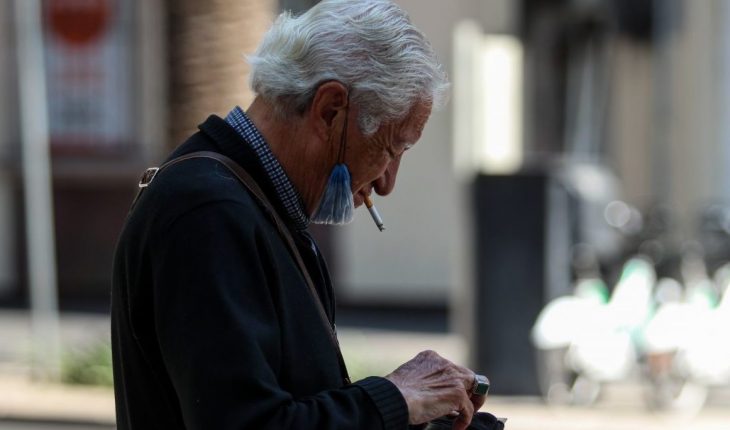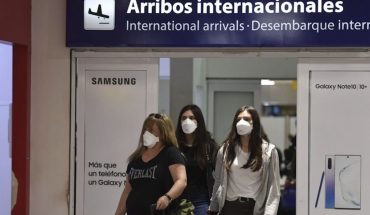This year, World No Tobacco Day occurred when millions of people around the world were locked in their homes because of the COVID-19 pandemic, a disease that particularly affects smokers.
Global and national authorities have highlighted that COVID-19 deaths are concentrated in seniors, but also those suffering from health problems such as high blood pressure, diabetes, respiratory diseases and cancer, among others, but smoking is also reported to be a major risk factor that can make a difference in the severity of symptoms or the fatal consequences of the virus.
“Smoking is adverse, it is bad, it is very counterproductive to COVID disease and also the use of e-cigarettes,” said Undersecretary for Prevention and Health Promotion Hugo López Gatell in a participation in the April 25 news conference.
However, in Mexico while the sale of traditional cigarettes is permitted, although regulated by the federal authority, electronic nicotine management systems (SEANs) and other alternatives offered on the market are prohibited.
“In Mexico we have a complicated landscape. First, health authorities have deliberately banned the marketing of these products, however, the Supreme Court has reversed that ban in several cases. On the other hand, a recent decree of the Presidency of the Republic prohibiting the importation of THE SEAN stands out”, sums up Javier Zúñiga Ramiro, coordinator of the legal area of iSalud Justa Mx, an organization that seeks to promote the design and implementation of public policies that contribute to the exercise of the right to health, especially in the face of noncommunicable diseases.
In a document entitled XV Evaluation of the Civil Society on Public Policies for Tobacco Control in Mexico published on May 27 of this year, Zúñiga Ramiro states that according to the Supreme Court of Justice of the Nation, the prohibition of the sale, marketing, distribution and other commercial activities related to tobacco, tobacco or nicotine products represents unequal treatment of , which does not mean that an unrestricted permission is granted.
“On the contrary, the SCJN emphasized the need for regulation in line with the minimums set out in the General Law on Tobacco Control, such as, by way of example: having a health license, prohibiting the supply of such products to minors, displaying material with health warnings, complying with external labelling of products to warn about the harmful effects of tobacco , reporting on the content of the product, excluding false or misleading information in packaging, prohibiting any form of advertising, promotion and sponsorship,” he detailed.
However, it clarified that the new products do not constitute legitimate smoking cessation therapy because of the toxic substances that contain
In the same way, Juan Núñez Guadarrama, also a member of Salud Justa Mx, said that the Federal Commission for the Protection of Health Risks (Cofepis) has the power to regulate new tobacco and nicotine products, based on the current restrictions on traditional cigar.
“Thus, through this secondary administrative regulation, one can regulate in a timely manner and attend to each of the particularities of the new electronic tobacco and nicotine products,” he said
Meanwhile, during a virtual forum, organized by the National Institute of Public Health (INSP) to address the issue of Tobacco Control, Juan Zinzer, president of the Mexican Council against Smoking, considered that e-cigarettes should be regulated like traditional cigars.
“It should be regulated in accordance with the restrictions that exist for any tobacco-derived product. Nicotine is a product of tobacco, even if the presentation of the devices is different (…). In general, the attitude that we have handled in the group that we have worked on this for many years is not that this disappears, it is not to ban in a sharp way but to regulate because regulation allows to have better control in this regard”, he opined.
In turn, Inti Barrientos, a researcher at the National Institute of Public Health, supported this message and promoted the idea of making a strong regulation to avoid the risks of such products.
RECOGNITION TO THE GOVERNMENT
However, on this World No Tobacco Day, the World Health Organization awarded the Mexican government an award for its advances in tobacco control. The organiseinternational international organization recognized two important items.
First, after eight years without a tax increase on cigarettes, achieve an update of the fixed amount of the Excise Tax on Production and Services (IEPS) on cigarettes within the 2020 Economic Package. Second, the import ban on electronic nicotine delivery systems (SEAN), similar nicotine-free systems (SSSN) and heated tobacco products (PTCs), implementing a policy to prevent the use of these products in the population, particularly by young people.
What we do in Animal Político requires professional journalists, teamwork, dialogue with readers and something very important: independence. You can help us keep going. Be part of the team.
Subscribe to Animal Político, receive benefits and support free journalism #YoSoyAnimal.





